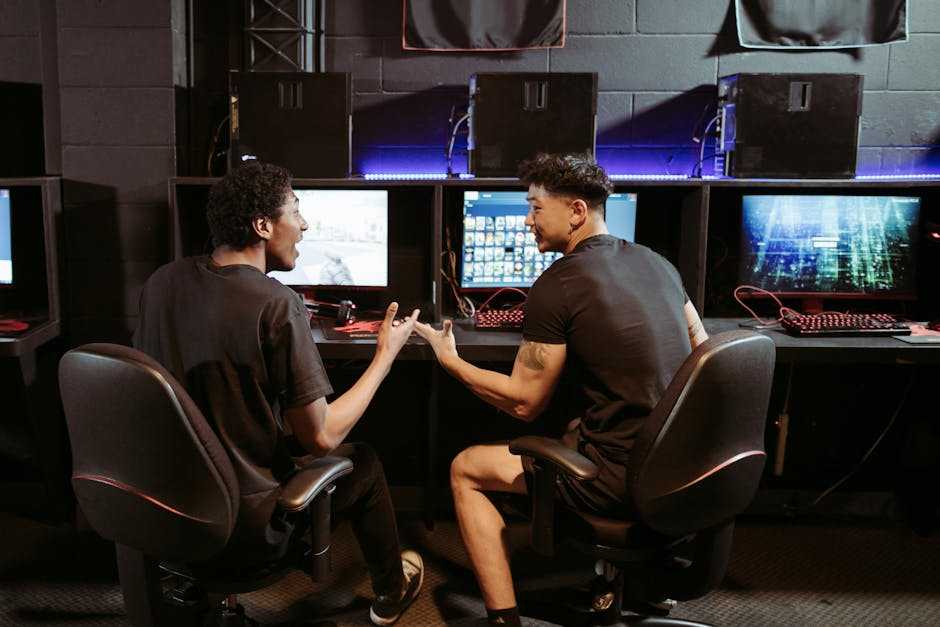The Rise of Esports
Esports has grown from small gatherings to massive global events attracting millions of viewers. Its rapid evolution highlights its impact on entertainment, culture, and the gaming industry.
From Niche Hobby to Global Phenomenon
Initially, esports existed within small, localized communities. Early competitions, such as the 1980 “Space Invaders Championship,” showcased gaming to a limited audience. By the 2000s, advancements in streaming platforms like Twitch and high-speed internet allowed esports to flourish, reaching audiences worldwide.
Today, esports draws huge audiences to events like the League of Legends World Championship and Dota 2’s The International. These events rival traditional sports in viewership and prize pools, emphasizing esports’ position as a dominant entertainment medium. Global brands such as Red Bull and Intel sponsor players and tournaments, further solidifying its inclusion in mainstream culture.
Key Milestones in Esports History
Esports milestones demonstrate its progression into a professional industry. In 1997, the Red Annihilation Quake tournament marked one of the first competitive gaming events with a large prize—a Ferrari. In 1998, Starcraft tournaments in South Korea catalyzed esports’ regional popularity, leading to dedicated TV channels.
The founding of Major League Gaming (MLG) in 2002 brought structured leagues to North America. Twitch launched in 2011, revolutionizing live-streaming and creating unprecedented accessibility for fans. In 2018, the International Olympic Committee hosted an esports forum, reflecting its growing legitimacy.
These landmarks illustrate how esports transitioned from a pastime to a structured, professional sport commanding global respect.
How Esports is Redefining Competitive Gaming

Esports bridges the gap between traditional sports and digital entertainment, creating new opportunities for players and audiences. Its rapid rise integrates cutting-edge technology, global connectivity, and professional standards to reshape the competitive gaming industry.
The Role of Technology in Transforming Gaming
Advancements in technology drive esports’ transformation, enabling:
- high-performance gaming platforms
- immersive graphics
- low-latency connectivity
Innovations like 5G networks and cloud gaming enhance accessibility by eliminating hardware limitations, allowing broader participation. Streaming platforms, such as Twitch and YouTube Gaming, provide real-time event coverage, expanding reach exponentially. AI tools analyze gameplay patterns, aiding training programs, and esports organizations adopt VR and AR technologies for engaging spectator experiences.
Breaking Geographic and Cultural Barriers
Esports transcends borders, uniting players and fans globally. Online tournaments eliminate the need for physical gatherings, allowing competitors from various continents to interact seamlessly. Cultural diversity is evident in international events like the Overwatch World Cup, where teams from multiple nations showcase their unique styles. Global fanbases communicate through multilingual streams and social media platforms, fostering community. Cross-border sponsorship deals from giants like Samsung and Coca-Cola also illustrate esports’ interconnected appeal.
The Emergence of Professional Gaming Leagues
Structured leagues establish esports’ legitimacy as a competitive industry. Organizations like the League of Legends Championship Series (LCS) and Call of Duty League implement consistent seasons, team rankings, and playoffs, mimicking traditional sports frameworks. Prize pools for esports leagues often exceed $30 million, as seen in The International for Dota 2. Salaried players and coaching staff highlight its professional scope. Such leagues attract corporate partnerships and broadcasting rights deals, further solidifying esports as a mainstream competitive domain.
Economic Impact of Esports
Esports drives significant economic growth through sponsorships, media rights, prize pools, and player salaries. Its expanding financial ecosystem attracts industries beyond gaming, fueling global investments.
Sponsorships and Media Rights
- Esports generates billions in revenue from sponsorships, with brands like Nike, Coca-Cola, and Intel partnering with teams and leagues.
- In 2022, global esports sponsorship revenue surpassed $1.1 billion, contributing over 60% of the industry’s income.
- Media rights deals, including partnerships with platforms like YouTube Gaming and Twitch, bring millions more, enhancing accessibility for global audiences.
- Exclusive broadcasting agreements ensure a steady revenue stream, bolstering the industry’s financial stability.
The Growing Prize Pools and Player Salaries
Prize pools in esports tournaments rival traditional sports. For example, Dota 2’s The International 2021 offered $40 million, the largest in esports history. Competitive leagues, such as the Overwatch League and the League of Legends Championship Series, consistently feature multimillion-dollar rewards. Players in top-tier esports leagues earn six to seven-figure salaries annually, with earnings augmented by sponsorship deals and streaming revenues. This economic structure positions esports as a lucrative and sustainable career path.
The Influence of Esports on Traditional Sports
Esports is reshaping how audiences and athletes perceive competition. Its influence extends to traditional sports, driving innovation and breaking boundaries.
Blurring the Lines Between Physical and Digital Competition
Esports introduces a competitive experience that merges physical strategy and digital skill. Just like physical sports, esports demands precision, quick reflexes, and mental endurance. Games like FIFA and NBA 2K recreate traditional sports in virtual arenas, creating a familiar yet innovative playing field. Fans of these sports enjoy similar excitement in esports, with game mechanics mirroring real-life tactics and rules.
Athletes from traditional sports increasingly engage in esports. For instance, the COVID-19 pandemic saw NASCAR athletes competing in iRacing events, replacing canceled races. Such instances highlight how esports complements traditional formats, especially during disruptions.
Collaboration Between Traditional Sports and Esports
Partnerships between traditional sports organizations and esports pioneers are expanding competitive landscapes. Many professional sports leagues, like the NBA, invest in esports counterparts, such as the NBA 2K League. These collaborations leverage existing fanbases to boost engagement across platforms.
Clubs and teams also integrate esports into their operations. European soccer clubs like Paris Saint-Germain and Manchester City field professional esports teams in games like FIFA. This investment creates new revenue streams and introduces younger audiences to their brand. Additionally, annual events like the FIFA eWorld Cup showcase the synergy between sports and esports by bridging both spheres for mutual growth.





